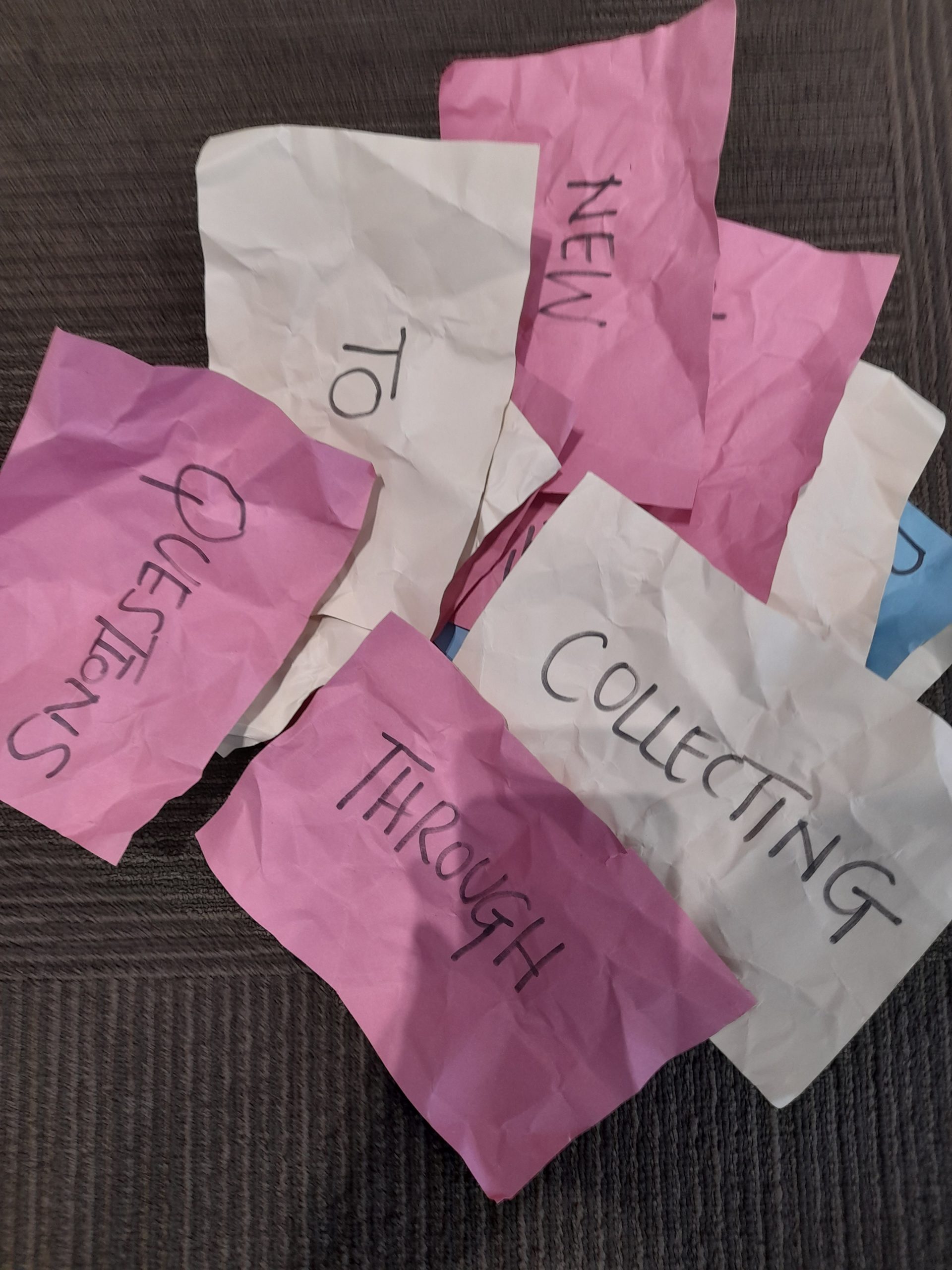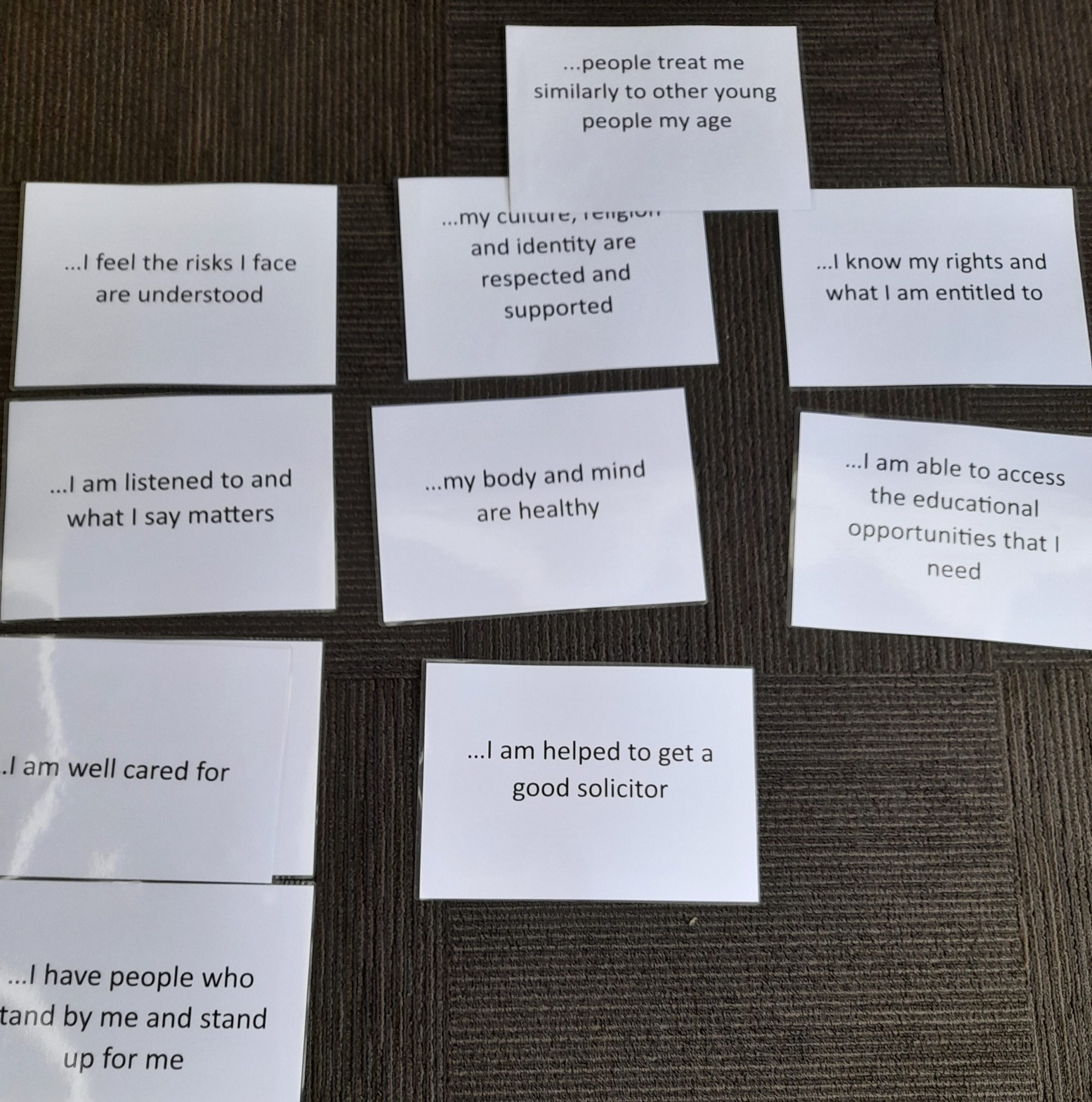Support for children with lived experience of modern slavery
26 April 2024Guest Post by Dr Anna Skeels, Research Fellow, SPARK, Cardiff University
Child modern slavery is complex, often hidden, an extreme violation of children’s protection and their rights. Modern slavery is an umbrella term for all forms of present-day slavery, human trafficking and exploitation and, in relation to children, includes sexual and criminal exploitation, organ harvesting, forced labour and domestic servitude.
Children identified as potential victims of modern slavery in England and Wales are referred by ‘first responders’ (for example, social workers, the police) into a system called the National Referral Mechanism (NRM). Many of these children will then receive direct one-to-one support through Barnardo’s Independent Child Trafficking Guardianship (ICTG) Service or indirectly benefit from the Service working as part of a multi-agency approach.
There is currently an evidence gap in relation to children’s experiences of, and views on, the support they have received, its benefits and limitations for them and for their lives and how it might most effectively meet their needs. Despite being centred on advocacy and giving voice to children, external evaluations of the ICTG Service have either not extensively engaged children themselves and/or have done so through more traditional methods like interviews. These methods are unsuitable for vulnerable children who have experienced trauma and as such, they have significant limitations.

Earlier this year, I was commissioned to undertake research on the support available for children with lived experience of modern slavery as part of a nine-month Fellowship funded by the Modern Slavery Policy and Evidence Centre (MSPEC). This research was to explore the longer-term protection, safeguarding, well-being and recovery related outcomes for children supported by the Barnardo’s ICTG Service. I was asked to use an innovative and participatory methodology to collect data safely and meaningfully from children themselves, as well as enable the participation of young people in the research process itself. As such, the research aimed to address the identified evidence gap, to have strong, child-focused foundations and a purposeful accountability to those children and young people involved.
One methodology, I considered, that might lend itself to this study with this group of children and young people is ‘Q-Methodology’. Q-Methodology (sometimes known as ‘Q’),an active, participatory approach which requires sorting and prioritising a set of statements on a particular issue, could have potential benefits for research with child survivors of modern slavery who are trauma-experienced and need to feel more in control. This approach has been shown to draw out patterns, areas of difference and consensus on a particular area of focus or theme. Q is innovative in this context with this target group so I want to see whether it can indeed be accessible and appropriate for these children and young people’s engagement
In addition, I want to investigate whether Q might be used in a way that young people with lived experience of modern slavery could participate in the research process itself. For example, through advising on the design of the statements and making them accessible to other children and young people, as well as creating a young person friendly output sharing the results of the research with their peers. I will be exploring this in my research .

I will also be drawing on the Positive Outcomes Framework which is a set of child rights-based outcomes statements. It k is visually represented as a ‘flower’ with different outcomes on each ‘petal’, many of which could directly apply to the ICTG Service and was developed with non-UK national young people with lived experience of modern slavery by Professor Patricia Hynes at Sheffield Hallam University in 2022. The Positive Outcomes Framework provides a strong starting point for discussion with a young people’s advisory group and for exploring ICTG Service outcomes with children.
Now in September 2023, with ethical approval in place, I am working with Barnardo’s to recruit a group of young people to undertake the research advisory role and the first interactive session will be run with this group later this month. Through a group ‘challenge’ these young people will feed back on the relevance and articulation of the Positive Outcomes Framework statements and pilot them on behalf of their peers. Practitioners from across the service will then support individual children to take part in the research itself, with at least thirty one-to-one sorting activities taking place over August and September, some in-person and some online. Analysis of the data from these research activities as well as other data relating to the ICTG Serviced and outcomes for children will take place in September and October with the final outputs from the research written by the end of this year. Results will then be publicly available in early 2024.
At this point, it is also hoped that, building on this research with children and young people and the established partnership with Barnardo’s and MSPEC, it will be possible to catalyse these children’s views to accelerate research impact across practice, professional and policy domains. I will also be able to reflect on the research, the benefits and challenges of Q as a methodology in this field and whether it indeed enabled me to engage with children with lived experience of modern slavery in a safe, meaningful and trauma-informed way.
REFERENCES
Ellingsen, I.T., Størksen, I., and Stephens, P. (2010) Q methodology in social work research. International Journal of Social Research Methodology, 13:5, 395-409.
Goodwin, J. and Tiderington, E. (2022). Building trauma-informed research competencies in social work education, Social Work Education, 41:2, 143-156.
Hynes, P., Connolly, H., and Duran, L. (2022). Creating Stable Futures: Human Trafficking, Participation and Outcomes for Children. Final Report. Sheffield Hallam University.
Kohli, R., Hynes, P., Connolly, H., Thurnham, A., Westlake, D., and D’Arcy, K. (2015). Evaluation of Independent Child Trafficking Advocates trial. Final Report. University of Bedfordshire.
Kohli, R., Connolly, H., Stott, H., Roe, S., Prince, S., Long, J., Gordon-Ramsey, S. (2019). An evaluation of Independent Child Trafficking Guardians – early adopter sites. Final report. Research report 111, edn, London: Home Office.
Office for National Statistics (ONS). Released 29 March 2022. Home – Office for National Statistics (ons.gov.uk). Statistical Bulletin. Child victims of modern slavery in the UK: March 2022.
Thorsen, A., and Størksen, I. (2010. Ethical, methodological, and practical reflections when using Q methodology in research with young children. Operant Subjectivity 33.1/2.
Van Biileveld, G., Dedding, C. and Bunders-Aelen, J. (2013) Children’s and young people’s participation within child welfare and child protection services: a state-of-the-art review, Child and Family Social Work
Watts, S. and Stenner, P. (2012) Doing Q methodological research: theory, method and interpretation. Sage: London.